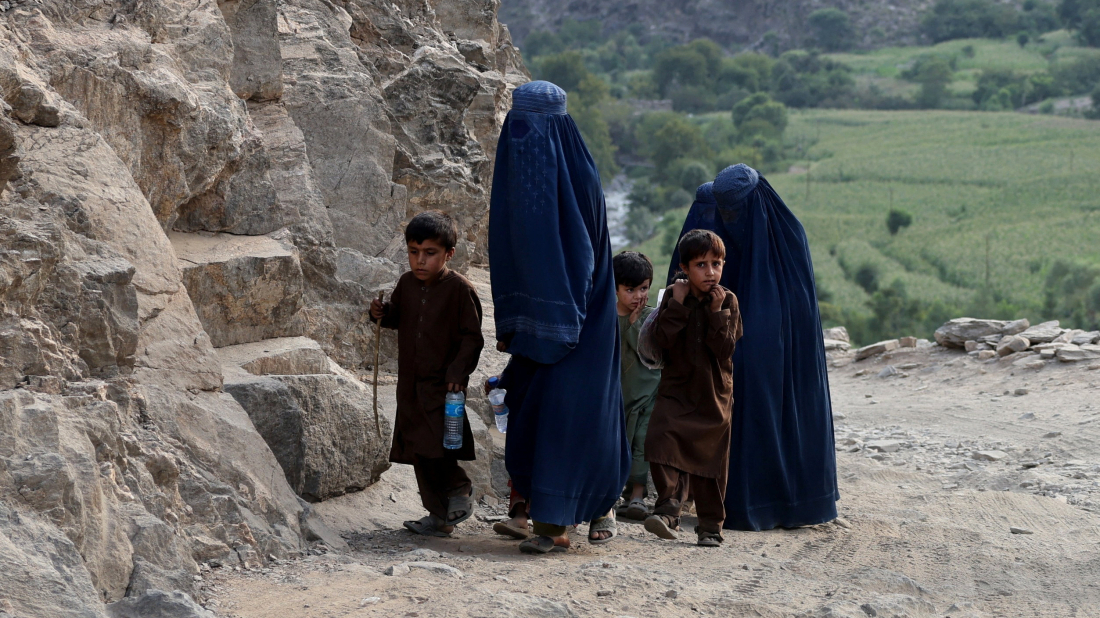Ancient Sinai site reveals 10,000 years of human life, Egypt says
Egyptian archaeologists have uncovered a major prehistoric site in South Sinai dating back around 10,000 years, revealing layers of human activity car...

The World Health Organization (WHO) has asked Taliban authorities to lift restrictions on Afghan female aid workers, allowing them to travel without male guardians and help women struggling to access care after a powerful earthquake killed 2,200 people in eastern Afghanistan.
"A very big issue now is the increasing paucity of female staff in these places," Dr Mukta Sharma, the deputy representative of WHO's Afghanistan office, told Reuters.
She estimated around 90% of medical staff in the area were male, and the remaining 10% were often midwives and nurses, rather than doctors, who could treat severe wounds. This was hampering care as women were uncomfortable or afraid to interact with male staff and travel alone to receive care.
The 1 September magnitude 6 quake and its aftershocks injured more than 3,600 people and left thousands homeless in a country already dealing with severe aid cuts and a slew of humanitarian crises since the Taliban took over in 2021 as foreign forces left.
The Afghan health ministry and a spokesperson for the Taliban administration did not immediately respond to a request for comment.
The Taliban says it respects women's rights in line with its interpretation of Islamic law and have previously said they would ensure women could receive aid.
Its administration in 2022 ordered Afghan female NGO staff to stop working outside the home. Humanitarian officials say there have been exemptions, particularly in the health and education sectors, but many said these were patchwork and not sufficient to allow a surge of female staff, particularly in an emergency situation that required travel.
That meant aid organisations and female staff faced uncertainty, Sharma said, and in some cases were not able to take the risk.
"The restrictions are huge, the mahram (male guardian requirements) issue continues and no formal exemption has been provided by the de facto authorities," she said, adding her team had raised the issue with authorities last week.
"That's why we felt we had to advocate with (authorities) to say, this is the time you really need to have more female health workers present, let us bring them in, and let us search from other places where they're available."
Sharma said she was extremely concerned about women in the future being able to access mental health care to deal with trauma as well as for those whose male family members had been killed, leaving them to navigate restrictions on women without a male guardian.
Peer Gul from Somai district in Kunar province, which was severely hit by the quakes, said many women from his village had experienced trauma and high blood pressure after the earthquake and were struggling to reach medical care.
"There is no female doctor for examinations; only one male doctor is available," he said.
Sharma noted the growing shortage of Afghan female doctors as the Taliban have barred female students from high school and university, meaning a pipeline of women doctors was not being replenished.
The United Nations estimates around 11,600 pregnant women were also impacted by the quakes in a country with some of the highest maternal mortality rates in Asia.
Funding cuts, including by the U.S. administration this year, had already left the health system reeling. Around 80 health facilities had already closed in the affected areas this year due to U.S. aid cuts and another 16 health posts had to be shuttered due to damage from the earthquake, Sharma said.
James Van Der Beek, who rose to fame as Dawson Leery in the hit teen drama Dawson’s Creek, has died aged 48 following a battle with stage 3 colorectal cancer.
U.S. President Donald Trump and Prime Minister of Israel Trump hosted Netanyahu for closed-door talks focused on negotiations with Tehran, Gaza and wider rBenjamin Netanyahu ended a two-and-a-half-hour meeting at The White House on Wednesday without reaching agreement on how to move forward on Iran.
Norway’s Sturla Holm Laegreid, who won bronze in the men’s biathlon at the Milano Cortina 2026 Winter Olympics on Tuesday (10 February) in Italy, stunned viewers by publicly admitting he had cheated on his girlfriend and pleaded for another chance during post-race interviews.
The suspect in a deadly school shooting in western Canada was an 18-year-old woman who allegedly killed her mother and stepbrother before attacking her former school. Investigators have not provided a motive for what is being described as one of the worst mass killings in Canada.
Türkiye and Greece signalled renewed political will to ease long-standing tensions during high-level talks in Ankara on Wednesday (11 February). Maritime borders, migration and trade topped the agenda as both leaders struck a cautiously optimistic tone.
U.S. President Donald Trump said Israeli President Isaac Herzog is “disgraceful” for not granting a pardon to Prime Minister Benjamin Netanyahu, adding that he “should be ashamed of himself”.
Ukraine’s allies have pledged nearly $48bn in military support at a meeting of the Ukraine Defence Contact Group in Brussels, vowing to intensify pressure on Russia and strengthen Kyiv’s battlefield position.
Medical group accuses paramilitary force of targeting civilians in al-Kurqal area, urges international action to protect residents.
Day 6 of the Milano Cortina 2026 Winter Olympics brought fans and photographers unforgettable moments of athleticism, determination and sheer joy. From the ice rinks of Milan to the snowy slopes of Livigno, athletes pushed themselves to the limit delivering breathtaking performances.
U.S. border chief Tom Homan said on Thursday (12 February) a federal immigration crackdown in Minnesota will end after months of raids that led to more than 4,000 arrests, mass protests and two fatal shootings.
You can download the AnewZ application from Play Store and the App Store.

What is your opinion on this topic?
Leave the first comment